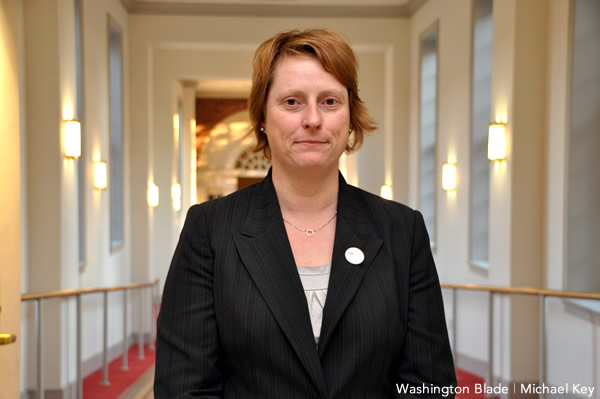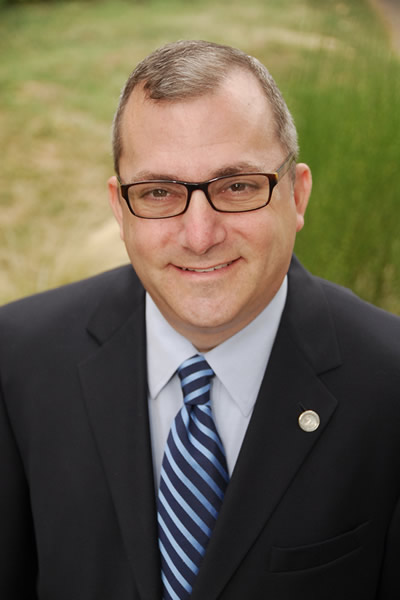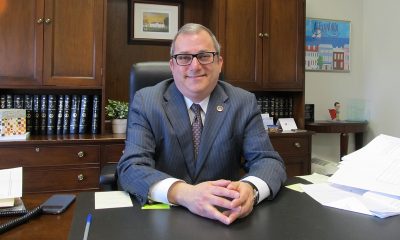Local
Md., Va. to tackle bias, trans rights as lawmakers return
Delaware could see action on marriage
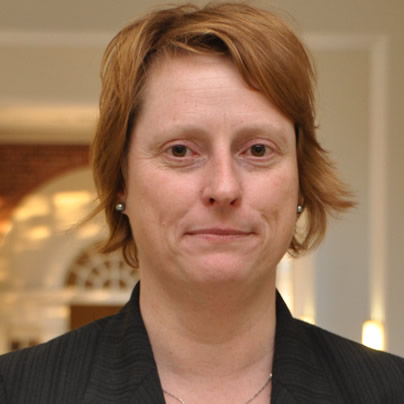
Lawmakers in Maryland and Virginia will consider a number of LGBT-specific issues during their respective legislative sessions that began on Wednesday.
Maryland legislators are likely to consider a bill that would ban anti-transgender discrimination in the workplace, housing and public accommodations. The Gender Identity Non-Discrimination Act died in the Senate Judicial Proceedings Committee last April because Senate President Thomas V. “Mike” Miller (D-Prince George’s and Calvert Counties) reportedly blocked a vote on it.
Miller has publicly backed the proposed measure that gay state Sen. Rich Madaleno (D-Montgomery County) will formally sponsor. He and state Sen. Jamie Raskin (D-Montgomery County) are expected to champion the bill in the chamber.
Gov. Martin O’Malley, who signed the state’s first anti-trans discrimination law in 2002 when he was the mayor of Baltimore, also backs the Gender Identity Non-Discrimination Act.
“We’re very optimistic this year because the world has changed,” Gender Rights Maryland Executive Director Dana Beyer told the Washington Blade. “The attitudes of not only the voters who proved on Nov. 6 that they’re supportive of progressive issues such as marriage equality and the Dream Act, but also the legislators have noticed that and are feeling a little bit emboldened.”
Equality Maryland Executive Director Carrie Evans shared Beyer’s optimism.
The Maryland Coalition for Trans Equality has grown to include CASA de Maryland, Progressive Maryland and 17 other organizations. Equality Maryland has posted a petition on its website in support of the Gender Identity Non-Discrimination Act
Evans said this group is “modeling ourselves off of the” campaign in support of the same-sex marriage referendum that passed last November by a 52-48 percent margin.
“We have an incredible window here in 2013 with the strength of the coalition, the good feelings everybody has about Equality Maryland,” she said. “We are going full surge ahead and hopefully passing this once and for all in 2013.”
A proposed assault weapons ban in the wake of the Dec. 14 massacre at a Newtown, Conn., elementary school that left 20 students and six administrators dead and efforts to repeal the state’s death penalty are among the issues expected to dominate this year’s legislative agenda in Annapolis, but Evans highlighted other issues on which she and other advocates hope to work in the coming year.
These include working with Attorney General Doug Gansler and other officials to ensure the state’s same-sex marriage law that took effect on Jan. 1 is properly implemented. She pointed to insurance and tax-related issues for same-sex couples and making sure state agencies have provisions that include gender-neutral references are top priorities.
Evans said she expects most of these changes will take place through new regulations or administrative tweaks, but “they are working on answering the question of redoing all of the areas of state law and what needs to be done legislatively. Strengthening Maryland’s anti-bullying laws is another priority.
“The problem has always been making sure once the law is passed it is implemented at all levels,” Evans said.
Va. bill would ban anti-LGBT bias
Virginia lawmakers are expected to consider a measure during their legislative session that would ban anti-LGBT discrimination against state employees.
State Sens. A. Donald McEachin (D-Henrico) and Adam Ebbin (D-Alexandria) introduced Senate Bill 701 last October. The state Senate passed similar measures in 2010 and 2011, but they stalled in the House of Delegates.
Equality Virginia Executive Director James Parrish told the Blade last November that SB 701’s chances of passing in the Republican-controlled House of Delegates this year are “very slim.”
“While our biggest challenge is the House of Delegates, this will be an opportunity to get legislators on the record for pro-LGBT legislation and see if they are really supporting equality and their constituency this election year,” he said.
Ebbin told the Blade he expects the Senate General Law Committee could potentially hear SB 701 in the coming weeks.
“The bill has passed the Senate before, but failed in the General Laws and Technology Committee last session,” he said. “It’s a sometimes challenging environment because there’s Republican control of that committee, but we’re working hard and hope there will be a breakthrough this year.”
Del. legislators expected to debate marriage
Delaware lawmakers are expected to consider a same-sex marriage bill between now and the end of their current legislative session on June 30.
Gov. Jack Markell, who signed the state’s civil unions law in 2011, suggested to the Huffington Post last August that state lawmakers could debate a measure that would allow gays and lesbians to tie the knot this year.
Spokesperson Catherine Rossi reiterated that point to the Blade.
“The governor expects that a marriage equality bill will be worked this session,” she said.
House Speaker Pete Schwartzkopf (D-Rehoboth Beach) described efforts to place a same-sex marriage bill on the 2013 legislative agenda as a “no-brainer” during an interview with the News-Journal on Tuesday. House Majority Leader Valerie Longhurst (D-Bear) added she expects Senate Majority Leader Patricia Blevins (D-Elsmere) and state Rep. Melanie George Smith (D-Bear) to introduce the measure.
Both legislators co-sponsored the civil unions bill.
Gays and lesbians can legally marry in neighboring Maryland and eight other states and D.C. Lawmakers in New Jersey, Illinois and Rhode Island are expected to consider similar measures in the coming weeks.
Virginia
Gay Va. State Sen. Ebbin resigns for role in Spanberger administration
Veteran lawmaker will step down in February

Alexandria Democrat Adam Ebbin, who has served as an openly gay member of the Virginia Legislature since 2004, announced on Jan. 7 that he is resigning from his seat in the State Senate to take a job in the administration of Gov.-Elect Abigail Spanberger.
Since 2012, Ebbin has been a member of the Virginia Senate for the 39th District representing parts of Alexandria, Arlington, and Fairfax counties. He served in the Virginia House of Delegates representing Alexandria from 2004 to 2012, becoming the state’s first out gay lawmaker.
His announcement says he submitted his resignation from his Senate position effective Feb. 18 to join the Spanberger administration as a senior adviser at the Virginia Cannabis Control Authority.
“I’m grateful to have the benefit of Senator Ebbin’s policy expertise continuing to serve the people of Virginia, and I look forward to working with him to prioritize public safety and public health,” Spanberger said in Ebbin’s announcement statement.
She was referring to the lead role Ebbin has played in the Virginia Legislature’s approval in 2020 of legislation decriminalizing marijuana and the subsequent approval in 2021of a bill legalizing recreational use and possession of marijuana for adults 21 years of age and older. But the Virginia Legislature has yet to pass legislation facilitating the retail sale of marijuana for recreational use and limits sales to purchases at licensed medical marijuana dispensaries.
“I share Governor-elect Spanberger’s goal that adults 21 and over who choose to use cannabis, and those who use it for medical treatment, have access to a well-tested, accurately labeled product, free from contamination,” Ebbin said in his statement. “2026 is the year we will move cannabis sales off the street corner and behind the age-verified counter,” he said.
Maryland
Steny Hoyer, the longest-serving House Democrat, to retire from Congress
Md. congressman served for years in party leadership
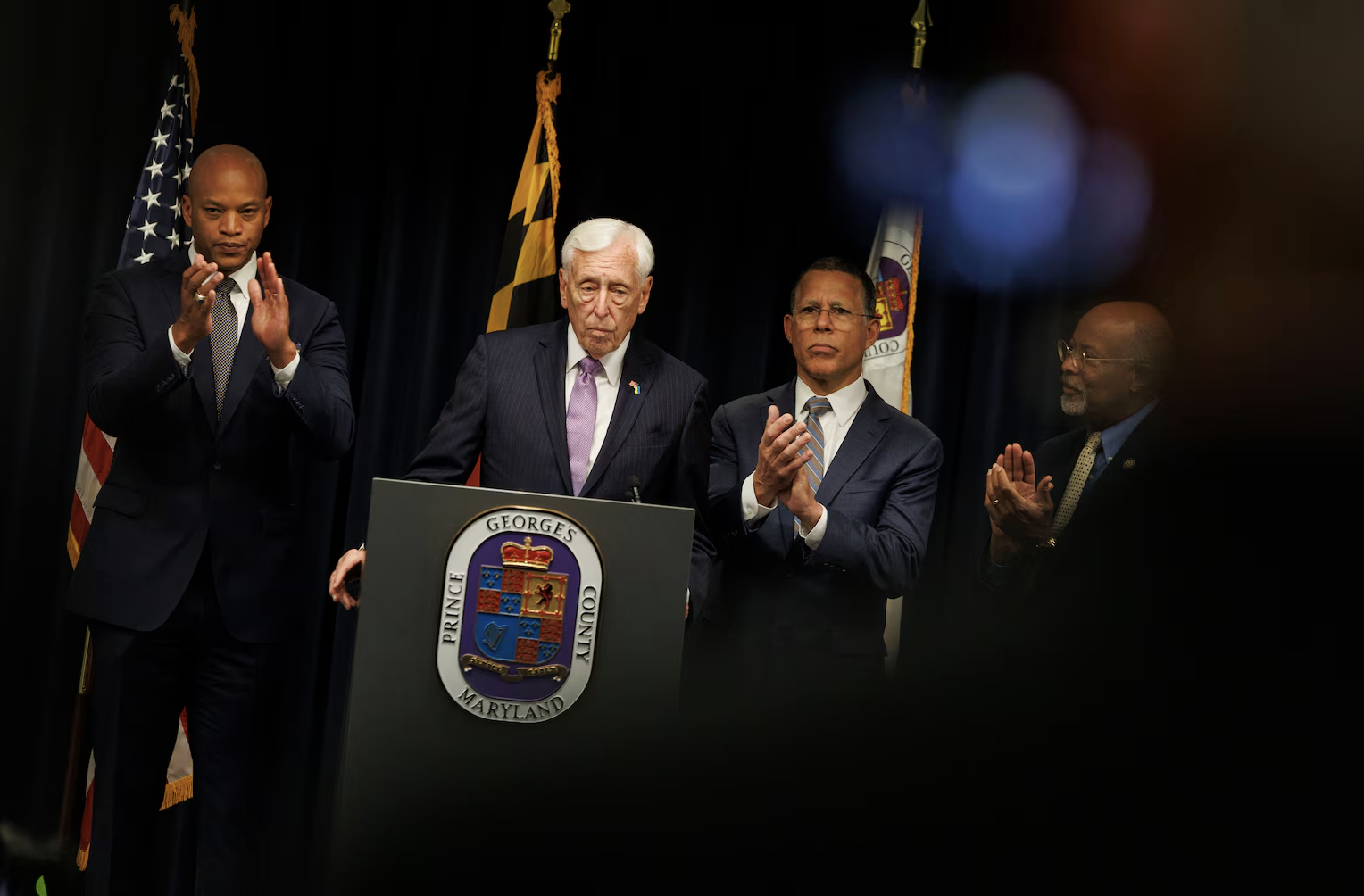
By ASSOCIATED PRESS and LISA MASCARO | Rep. Steny Hoyer of Maryland, the longest-serving Democrat in Congress and once a rival to become House speaker, will announce Thursday he is set to retire at the end of his term.
Hoyer, who served for years in party leadership and helped steer Democrats through some of their most significant legislative victories, is set to deliver a House floor speech about his decision, according to a person familiar with the situation and granted anonymity to discuss it.
“Tune in,” Hoyer said on social media. He confirmed his retirement plans in an interview with the Washington Post.
The rest of this article can be found on the Baltimore Banner’s website.
District of Columbia
Kennedy Center renaming triggers backlash
Artists who cancel shows threatened; calls for funding boycott grow

Efforts to rename the Kennedy Center to add President Trump’s name to the D.C. arts institution continue to spark backlash.
A new petition from Qommittee , a national network of drag artists and allies led by survivors of hate crimes, calls on Kennedy Center donors to suspend funding to the center until “artistic independence is restored, and to redirect support to banned or censored artists.”
“While Trump won’t back down, the donors who contribute nearly $100 million annually to the Kennedy Center can afford to take a stand,” the petition reads. “Money talks. When donors fund censorship, they don’t just harm one institution – they tell marginalized communities their stories don’t deserve to be told.”
The petition can be found here.
Meanwhile, a decision by several prominent musicians and jazz performers to cancel their shows at the recently renamed Trump-Kennedy Center in D.C. planned for Christmas Eve and New Year’s Eve has drawn the ire of the Center’s president, Richard Grenell.
Grenell, a gay supporter of President Donald Trump who served as U.S. ambassador to Germany during Trump’s first term as president, was named Kennedy Center president last year by its board of directors that had been appointed by Trump.
Last month the board voted to change the official name of the center from the John F. Kennedy Memorial Center For The Performing Arts to the Donald J. Trump And The John F. Kennedy Memorial Center For The Performing Arts. The revised name has been installed on the outside wall of the center’s building but is not official because any name change would require congressional action.
According to a report by the New York Times, Grenell informed jazz musician Chuck Redd, who cancelled a 2025 Christmas Eve concert that he has hosted at the Kennedy Center for nearly 20 years in response to the name change, that Grenell planned to arrange for the center to file a lawsuit against him for the cancellation.
“Your decision to withdraw at the last moment — explicitly in response to the Center’s recent renaming, which honors President Trump’s extraordinary efforts to save this national treasure — is classic intolerance and very costly to a non-profit arts institution,” the Times quoted Grenell as saying in a letter to Redd.
“This is your official notice that we will seek $1 million in damages from you for this political stunt,” the Times quoted Grenell’s letter as saying.
A spokesperson for the Trump-Kennedy Center did not immediately respond to an inquiry from the Washington Blade asking if the center still planned to file that lawsuit and whether it planned to file suits against some of the other musicians who recently cancelled their performances following the name change.
In a follow-up story published on Dec. 29, the New York Times reported that a prominent jazz ensemble and a New York dance company had canceled performances scheduled to take place on New Year’s Eve at the Kennedy Center.
The Times reported the jazz ensemble called The Cookers did not give a reason for the cancellation in a statement it released, but its drummer, Billy Hart, told the Times the center’s name change “evidently” played a role in the decision to cancel the performance.
Grenell released a statement on Dec. 29 calling these and other performers who cancelled their shows “far left political activists” who he said had been booked by the Kennedy Center’s previous leadership.
“Boycotting the arts to show you support the arts is a form of derangement syndrome,” the Times quoted him as saying in his statement.
-

 Sponsored4 days ago
Sponsored4 days agoSafer Ways to Pay for Online Performances and Queer Events
-

 District of Columbia3 days ago
District of Columbia3 days agoTwo pioneering gay journalists to speak at Thursday event
-

 Colombia3 days ago
Colombia3 days agoBlade travels to Colombia after U.S. forces seize Maduro in Venezuela
-

 a&e features3 days ago
a&e features3 days agoQueer highlights of the 2026 Critics Choice Awards: Aunt Gladys, that ‘Heated Rivalry’ shoutout and more

